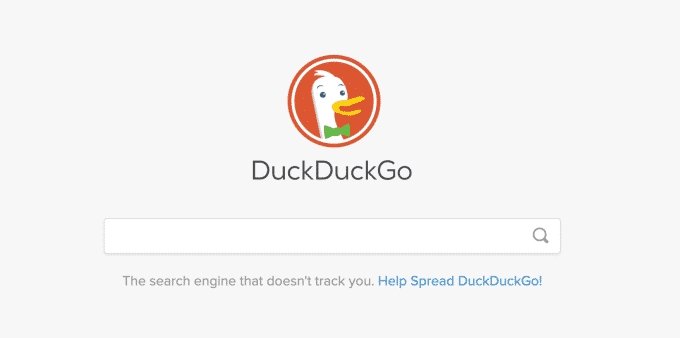In 2008, Gabriel Weinberg was trying to create the next big thing in search. The site he created was called The Names Database, which displayed names along with their popularity and geographical data. It wasn’t too long before he realized that the site he had created could be applied to a search engine in a number of ways. When it came time to name his new creation, Weinberg figured that people would be looking to search for things like local businesses and maps and decided on DuckDuckGo — a name that lies somewhere between duck hunting and the children’s game of ducking and hiding. Why should you be worried about the privacy of search engine results? What if the company is just waiting to compile your data so they can sell it off to advertisers? But, this is exactly what Google does.
The problem with Google has become a long and tangled one. It all started way back in 2004 when Google asked for users’ personal information. But, privacy is an issue that is present when it comes to even creating mobile Apps, which is why you need a well-known company like Elegant Media to help you out. In 2006, it wasn’t just personal information that the company sought — they wanted things like webmail, chat logs, and file downloads on top of user searches. Even more problematic was the fact that this data was tracked even if an individual had opted out of being monitored.
Yet as these guidelines weren’t actually mandated by law, there were no real consequences to any of this behavior. Additionally, as Google only tracks its users across different domains (such as sites like google.com, youtube.com, and blogger.com), it’s not that hard for the company to claim that they aren’t compiling a profile based on one website alone. Privacy has become a big deal today. DuckDuckGo is a search engine that offers users an alternative to something like Google. Should you make the switch?
DuckDuckGo, is a search engine that focuses heavily on privacy, and, today, there are plenty of privacy issues that need to be rectified. The company was launched in 2008 by Gabriel Weinberg, who was sick and tired of being tracked by Google and other companies while using the internet. So what does DuckDuckGo do differently from its s competitors? Well, first off it doesn’t track any of its users — at all.
Yet, the question arises: How does DuckDuckGo earn money? For starters, the company doesn’t have banner ads, or in-text ads. In fact, they don’t even have keyword-based ads — at all. There are barely any ads on the site — and when you do see them, they’re from companies that you can actually trust. That’s because DuckDuckGo hasn’t been keeping track of your data to begin with.
Instead of ad revenue, DuckDuckGo earns money by selling additional search features. Privacy is a big deal and there is a Job Vacancy for security analysts that are looked for online.For example, if you want to search images on DuckDuckGo, there is an upgrade that allows you to do so — without being connected to any kind of social media account or anything else like that. SEO is also built into the site — and it’s incredibly effective. Overall, DuckDuckGo has come a long way and has been able to build quite a name for itself among internet users all over. Speaking of convenience, this privacy browser is also available on the Google Play Store, which has been created by highly talented App Designers. The company is committed to protecting their users’ privacy, so if you’re willing to give it a try, you should think twice before trying out Google or any other company that might have your information.
